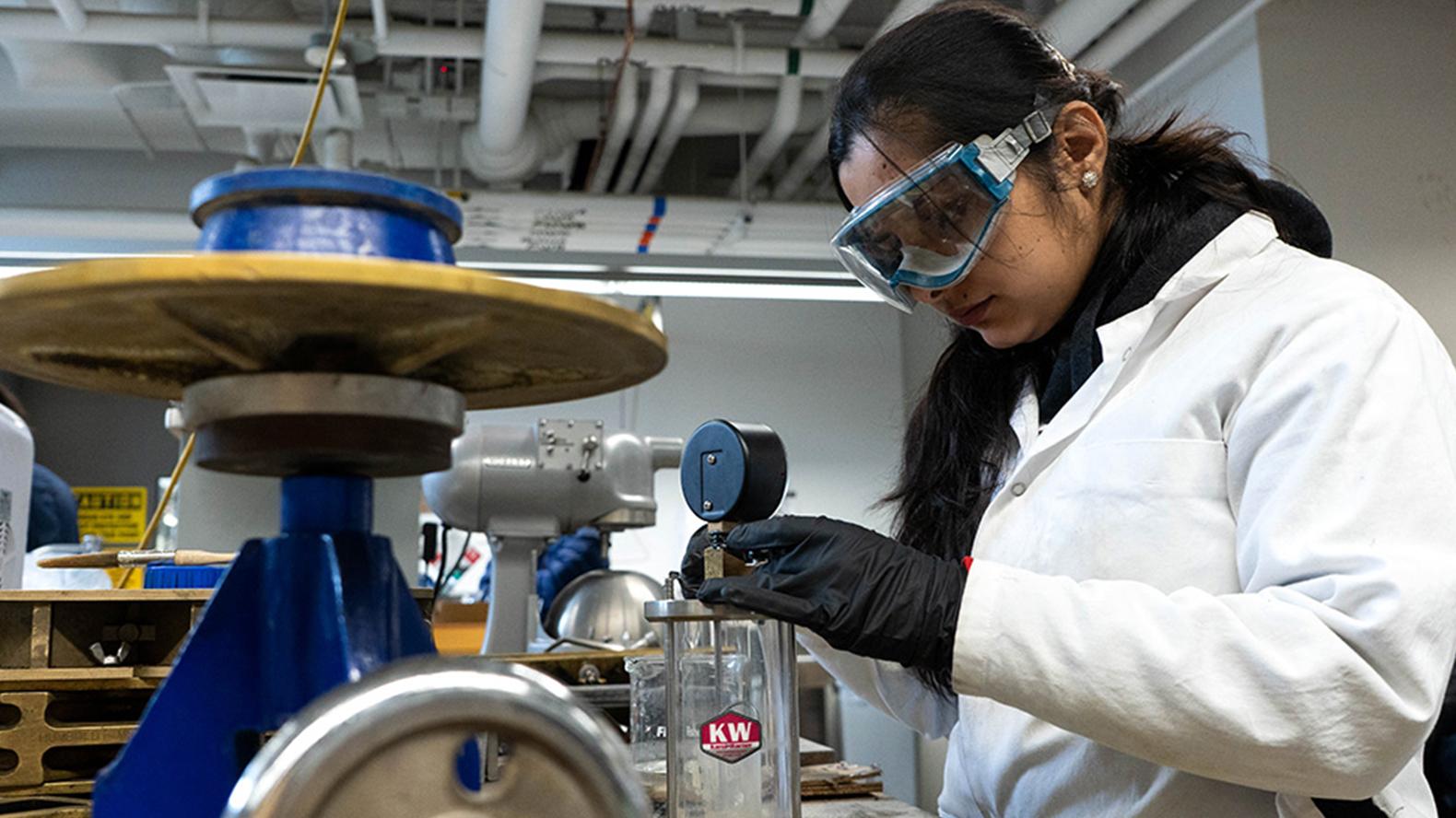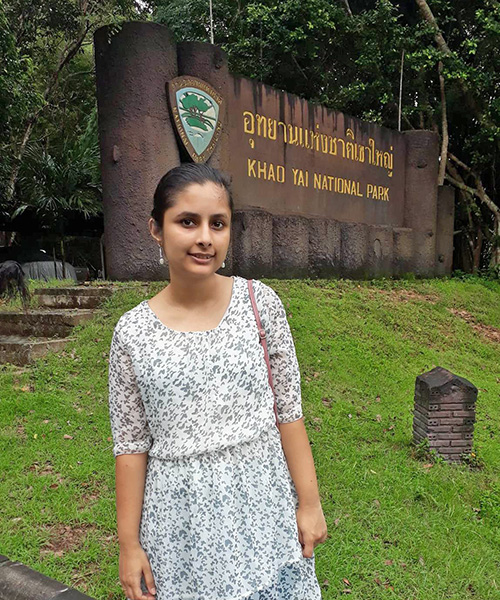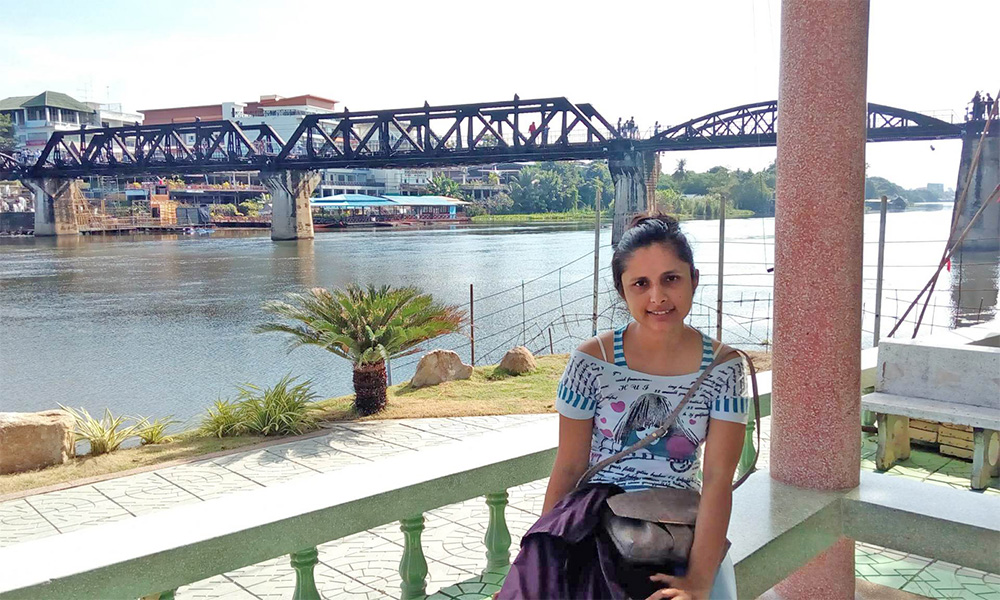
PROFILE
Name: Akanksha Bhurtel
Role: Doctoral student
Faculty: Applied Science
School: Engineering
Campus: Okanagan (Kelowna, BC)
Education: Master of Science, Engineering and Technology, Geotechnical Engineering, Thammasat University, Bachelor of Engineering, Civil Engineering, Pokhara University
Hometown: Chandragadhi, Jhapa, Nepal
Tell us a little bit about your research. Why is it important?

Climate change is one of the most significant challenges experienced throughout the world. The 2021 heat wave and wildfires in British Columbia are examples of some of the adverse effects of climate change.
One of the significant reasons for climate change is carbon emissions, which the construction industry is not immune to contributing. The production of cement accounts for almost five per cent of the total global carbon footprint. An environmentally friendly alternative to cement is required. Several alternatives have already been adopted, including coal fly ash, rice husk ash, fibres, biopolymers and bacteria.
But it isn’t enough to have seismic resistance in structures—the soil and foundation need to be strong as well. My current research is related to creating an environmentally sustainable biocomposite material using a fungus (mould) and wood fly ash to improve the strength properties of weak soils. Some of the bacteria and fungi generate enzymes that can help in the cementation of concrete and soils. I study the cementation induced by a fungus and how it might strengthen extremely vulnerable organic soils, which occupy about 18 per cent of the total Canadian landmass. Such soils are poor in strength and have high settlement behaviour.
What inspires you about your work?
I’m fascinated by mathematics, physics and engineering. Engineering research allows me to create problems, explore and then solve these problems in the best way possible. The interdisciplinary research I’m currently pursuing has also given me a chance to study other fields like biology. This is unique to my area and broadens my knowledge and skills so that I can apply them to the field of engineering.
What are some challenges you’ve faced in your academic career so far?
The greatest challenge for me was communication and cultural barriers. I’ve studied in Thailand and Canada, so I have challenges expressing myself sometimes. Initially, it was hard for me to communicate. But, moving from one country to another has taught me that accents aren’t that important, as long as we can communicate well. I try to be confident and express my ideas to people.
Nepal, where I come from, also has a distinct cultural background compared to the countries I’ve studied and researched. I’ve found every country has their own set of cultural formulations, whether it’s Nepal, Thailand or Canada. I love meeting new people with different cultures and ideas. I try my best to learn, follow and enjoy the culture I’m in.

Bhurtel at a section of the Burma Railway on the River Kwai, also known as the Death Railway, in Kanchanaburi, Thailand.
Why did you want to study in Canada and get a PhD?
During my time as a civil engineer for earthquake reconstruction projects in Nepal, I found that seismic resistance in structures often isn’t enough to withstand an earthquake. The strength of the soil and foundation on which the structure rests is also important for the stability of structures. Likewise, each year during rainy season, landslides cause huge destruction in Nepal’s rural areas, resulting in many human and physical losses.
The lack of geotechnical experts in Nepal led me to an education in this field. Living and getting an education in one of the least developed countries in the world—with very little exposure to research—I felt the need to search internationally. A scholarship led me to Thailand, where my research focused on strengthening tropical climatic soil. Due to the availability of advanced technologies, the research there helped broaden my skills related to geotechnical engineering.
Since Nepal has many mountainous regions, my tropical soil research wasn’t enough for me to work as a geotechnical expert there. That’s when I decided to continue my doctoral studies in a country with geographical similarities to Nepal. Canada, a country lying in a mountainous area, was my first choice. And I’ve always been fascinated by Canada’s high academic standards and abundant research opportunities.
Coming to UBCO and working as a research assistant with Dr. Sumi Siddiqua on soil improvement has been a great opportunity and an excellent pathway for me to chase my passions in this field.
And pursuing a doctorate at UBCO, one of the best universities, has provided me with opportunities to interact and share with civil engineering practitioners from all over the world.